Hannes Heikinheimo
Sep 19, 2023
1 min read
Blog
Speechly commissioned a survey of a nationally representative sample of over 1000 gamers. The survey found that nearly 70% of gamers have used voice chat at least once. Of those, 72% said they've experienced a toxic incident. Read more today in the Full Report.
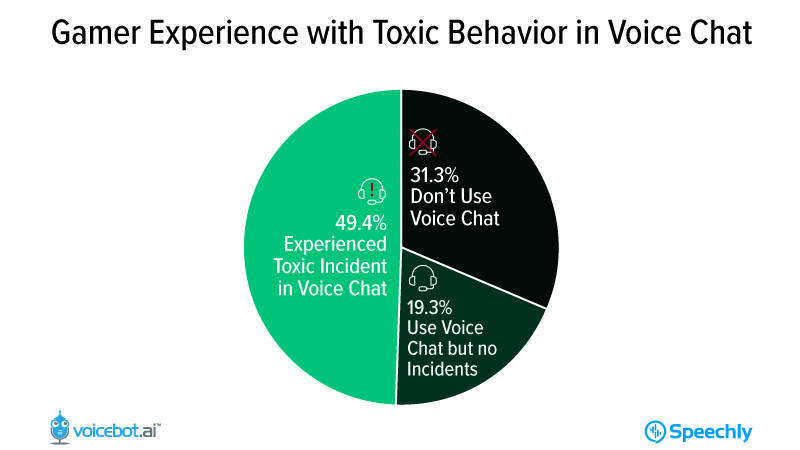
In a new national consumer survey, about half of U.S. online game players said they had experienced a toxic behavior incident in voice chat. They also said that voice chat was the channel with the biggest toxic behavior problem, beating out text-chat, in-game play, and user-generated content (UGC) by significant margins.
Click Here to Download Report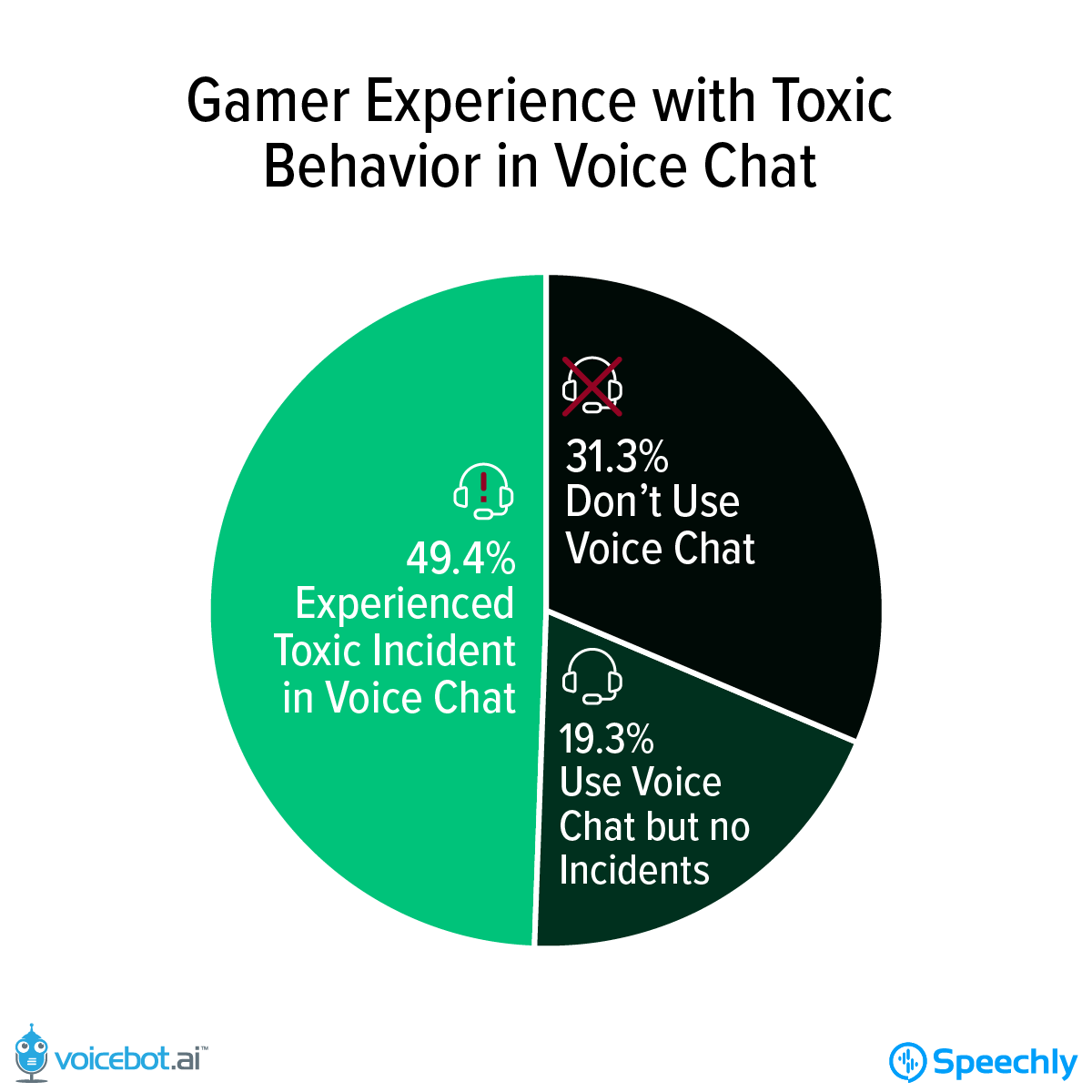
The data are included in a 60-page report developed by Speechly and Voicebot Research that includes nearly 50 charts and diagrams. Speechly commissioned the research after learning from game makers that they had very little information about user voice chat experience beyond player submitted complaints and anecdotal evidence posted in social media. We hope that the new report can be helpful for game developers working to improve player experience by reducing the incidence of toxic behavior.
Several previous studies have identified voice chat as a current and growing problem for harassment and toxic behavior in online games. However, when we set out to learn more, it became clear that surveys typically only asked about overall voice chat incidents and did not dig deeper to understand the nuances of the problem.
For example, we wanted to differentiate between harassment and other forms of toxic behavior. Harassment has a legal definition that varies around the world but it is directed and intentional. In addition, there are several forms of harassment ranging from bullying and griefing to sexual harassment and doxing.
Toxic behavior is a broader category that includes activities that undermine the player experience more generally but may not be directed at a specific player or overtly intended to do harm. Sexually explicit language, swear words, terms considered to be hate speech, some forms of trolling, and other categories combined with other forms of harassment all negatively impact player experience. It turns out that these problems are worst in voice chat.
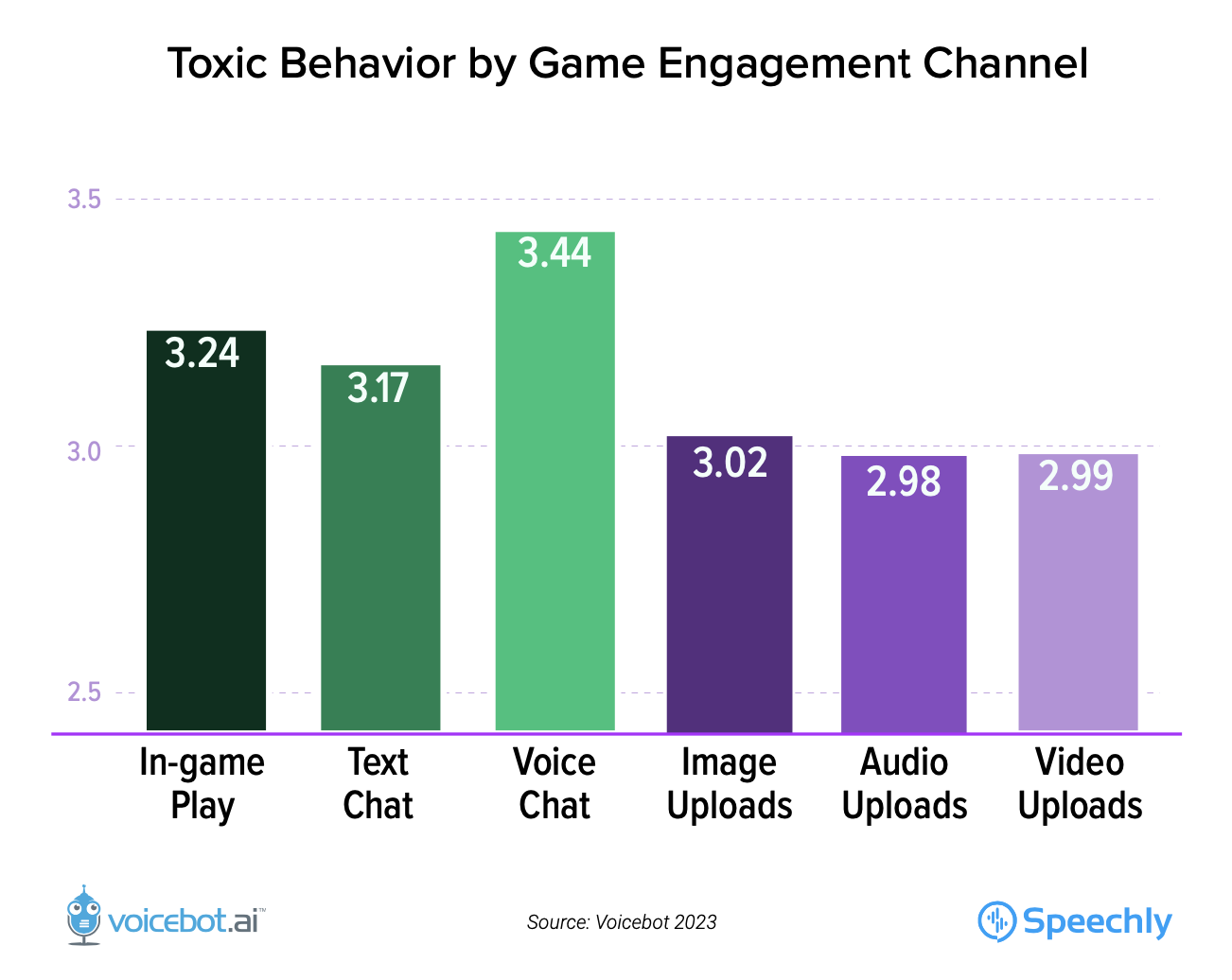
We asked online gamers to rate three categories of UGC, in-game play, and voice and text chat separately on a 0-5 scale indicating the severity of the toxicity problem. In-game play was rated second worst to voice chat, followed by text chat in third. The different UGC categories were all rated similarly. This is an important finding because it goes beyond simply identifying the rate of toxicity, but also captures player sentiment about severity by communication channel.
In industry interviews we found that some players even opt-out of voice chat altogether in these game formats and use text chat, a ping system, or no communications at all while playing. Why? They are avoiding toxic behavior common to voice chat channels.
We also found that many users change their behavior after experiencing toxic behavior incidents and these directly undermine game maker key performance indicators such as session length, session frequency, and retention. However, despite the issues, the mere presence of voice chat tends to boost these key metrics and average revenue per user. This means game makers have a significant incentive to offer a voice chat feature, and to actively police bad behavior.
Despite the issues, voice chat is a widely adopted feature. More than two-thirds of online game players say they use voice chat and the majority of those say they employ voice chat regularly.
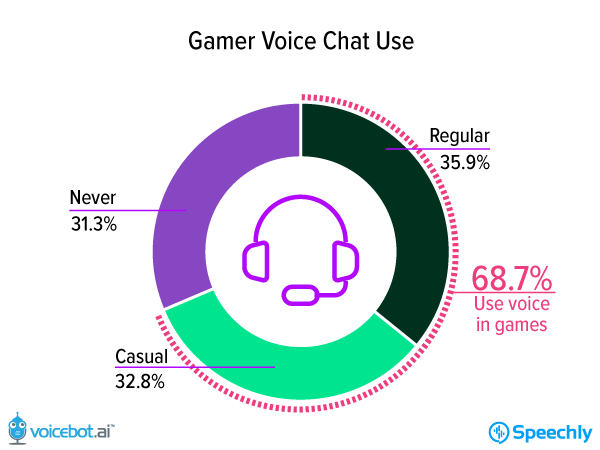
Gamers are also using voice chat because they like it. About 48% said they like games more when using voice chat while about 30% are neutral or unsure and about 22% say it has no impact. A plurality of users, 27.5%, strongly agreed that they liked games more when using voice chat.
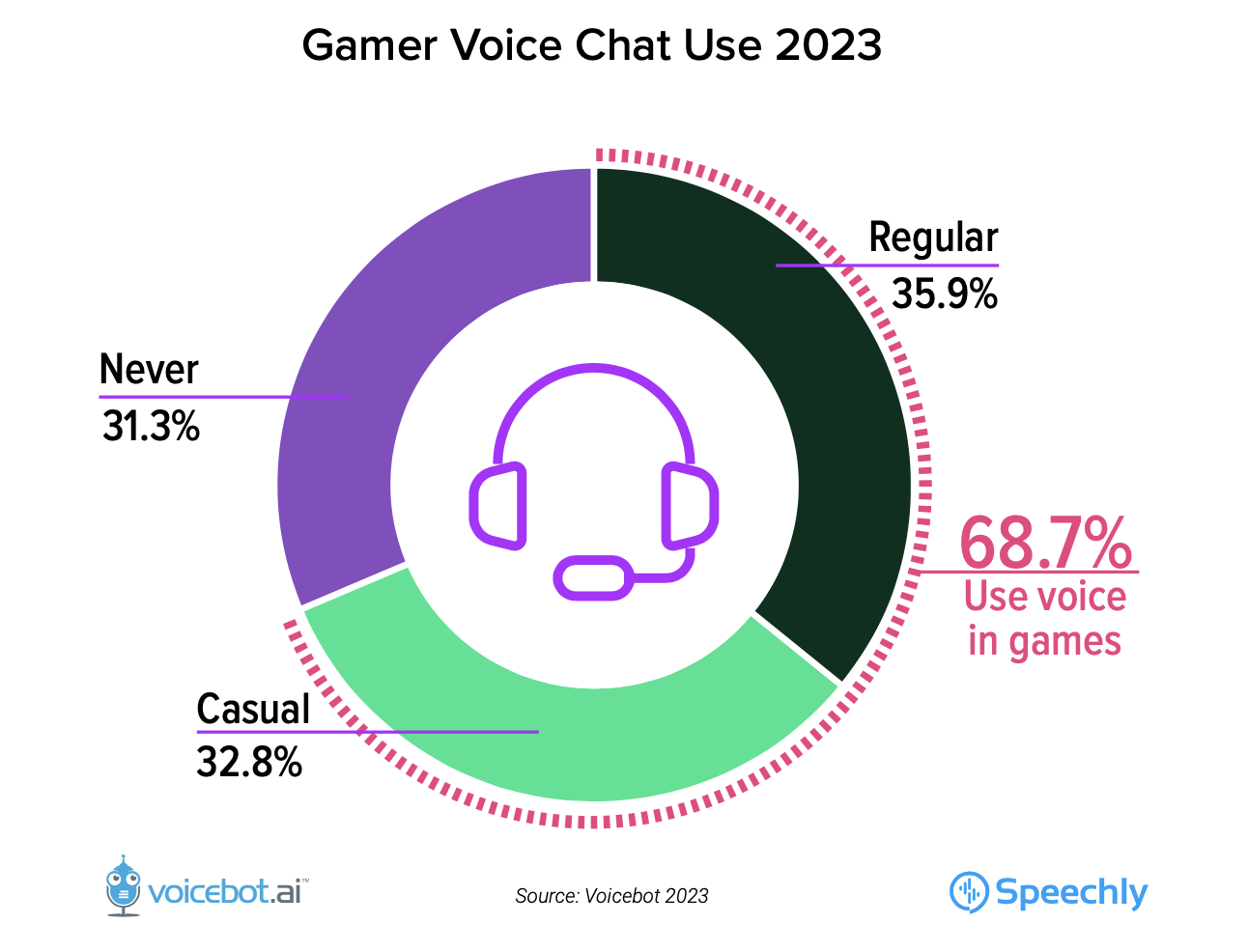
The interest in voice chat goes beyond team-based games where player coordination is important. Over 53% of voice chat users say they like the feature for connecting with friends. This compares to just 44% that list “improved gameplay coordination” as an important benefit.
It is clear that online gaming has become a key social channel for many players. Voice chat is a great way to connect with friends, get to know new people, and improve the oveall game experience. It has positive benefits for both players and game makers. However, the downside of toxic behavior is noteworthy.
We hope the data presented in the report proves useful to game makers as they plan their initiatives to combat voice chat toxicity.
Click Here to Download ReportSpeechly is a YC backed company building tools for speech recognition and natural language understanding. Speechly offers flexible deployment options (cloud, on-premise, and on-device), super accurate custom models for any domain, privacy and scalability for hundreds of thousands of hours of audio.
Hannes Heikinheimo
Sep 19, 2023
1 min read
Voice chat has become an expected feature in virtual reality (VR) experiences. However, there are important factors to consider when picking the best solution to power your experience. This post will compare the pros and cons of the 4 leading VR voice chat solutions to help you make the best selection possible for your game or social experience.
Matt Durgavich
Jul 06, 2023
5 min read
Speechly has recently received SOC 2 Type II certification. This certification demonstrates Speechly's unwavering commitment to maintaining robust security controls and protecting client data.
Markus Lång
Jun 01, 2023
1 min read